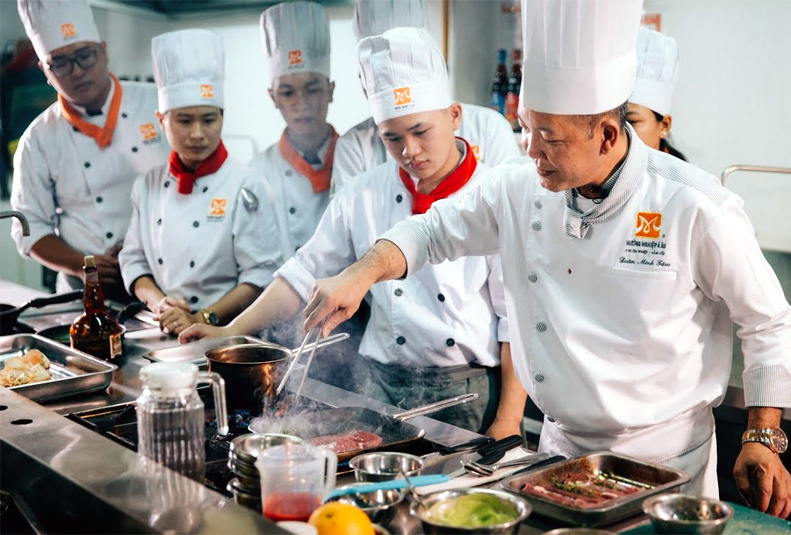Mr. Vu The Binh, Standing Vice Chairman of the Vietnam Tourism Association, said that one of the attractive products that Vietnam has not explored fully is cuisine.
According to the Vietnam Hotel Association, the development of the tourist accommodation system in recent years has led to the development of restaurants. Cuisine plays an important role when contributing 30% of the revenue of accommodation establishments. The team of chefs in Vietnam is rising, with about 30,000 people (working for 2-star hotels or more).
However, Mr. Vu The Binh said that chefs working at hotels are not really professional. High-end hotels are still scrambling for good chefs while chefs are still unprofessional when they unexpectedly quit jobs to seek new opportunities with higher pay, causing difficulties for restaurants.
Vietnam lacks chef training schools
 |
Mr. Nguyen Xuan Minh, General Chef of Deawoo Hanoi Hotel, said the number of trained and untrained chefs has never met the growing demand of the tourism industry.
The chief chefs at most of the big hotels are foreigners, which means that they cannot process pure Vietnamese dishes well, and this is the why Vietnamese cuisine has developed slowly and is unable to become an independent tourism product.
A survey by the Ho Chi Minh City Tourism Association shows that 70% of chefs are self-taught or learned from colleagues, and only 30% are trained. However, among hundreds of vocational training centers in Hanoi and Ho Chi Minh City, there is no official training school for chefs.
Meanwhile, the local tourism industry needs 40,000 workers, including 3,200 chefs.
Mr. Vu The Binh said that with 30,000 chefs currently working at big restaurants and hotels rated 2-star or more, and hundreds of thousands of other chefs working at restaurants of lower levels, it is necessary to have criteria to honor outstanding chefs.
This is why the Vietnam Tourism Association and Vietnam Chefs Association are developing technical standards for food processing, in order to bring chefs’ activities to professional standards and to improve the professional ethics of Vietnamese chefs.
The building of criteria for Vietnamese chefs, according to Mr. Vu The Binh, is essential to professionally develop Vietnamese cuisine, with the aim to turn Vietnam into “the world’s kitchen”.
Before 2000, the Vietnam National Administration of Tourism developed temporary standards for chefs (with 3 grades). However, these standards are no longer suitable to the actual situation.
Ha Yen



